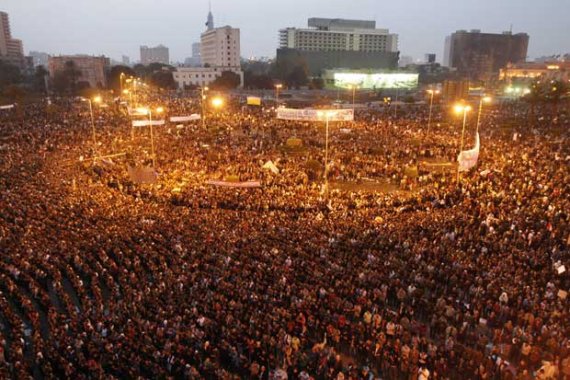Can social media bring about political change? In 2009 it seemed as though the answer was a resounding ‘yes’. In the wake of ‘stolen’ elections in Moldavia and Iran followed protests in which the social media, especially Twitter, are said to have played a big role. These protests did not lead to a political upheaval, but in 2011 it was a different story. Dictatorships in Tunisia and Egypt fell thanks to courageous young activists. And what was their secret weapon? Facebook. The reality is not quite so neat. With hindsight, it appears that Egyptian youth organizations copied their strategies from the Yugoslavian organization Otpor!, which brought down Slobodan Milosevic – without Twitter. Later analysis brought to light the fact that there were hardly any Twitter accounts in Moldavia or Iran at the time of the unrest. In Iran, the tweets – most of them in English – mainly came from the Iranian diaspora, while it was the secret service that was behind the unrest in Moldavian schools.
No big sacrifices
In October 2010 fashionable thinker MalcolmGladwell wrote Why the revolution will not be tweeted. He argued that picking up the cudgels against a dictatorship is a dangerous and long-term undertaking. Success is only possible for hierarchical organizations whose members are very close. Social media, by contrast, connect up total strangers. And they do not seem to be prepared to make big sacrifices, says Gladwell – an observation based on the fact that charities raise very little money through Facebook. In the Netherlands there could be a stronger basis for digital activism. The targets are more modest (no to the health insurance premium!) and more people use social media, including politicians. Nevertheless, caution is in place here too. Politicians do more talking than listening. And judging by their question time, it is still the newspapers that set the agenda. The question of how social media can or will influence democratic processes is therefore still largely unanswered. Besides, Twitter and Facebook are brand new: is there really any reason to assume that they will last longer that their forgotten predecessors? Plenty of scope for discussion during the Science Café Wageningen. On 29 November you can have your say about the significance of social media for democracy. Tell us about it on Twitter? RR Science Café Wageningen 29 November, 20.00 Café Loburg, entrance free Professor of Political Communication Claes de Vreese (UvA) and professor of Communication Science Jan van Dijk (UT)

